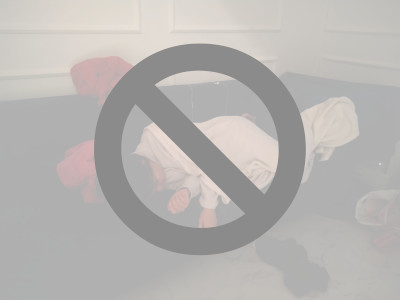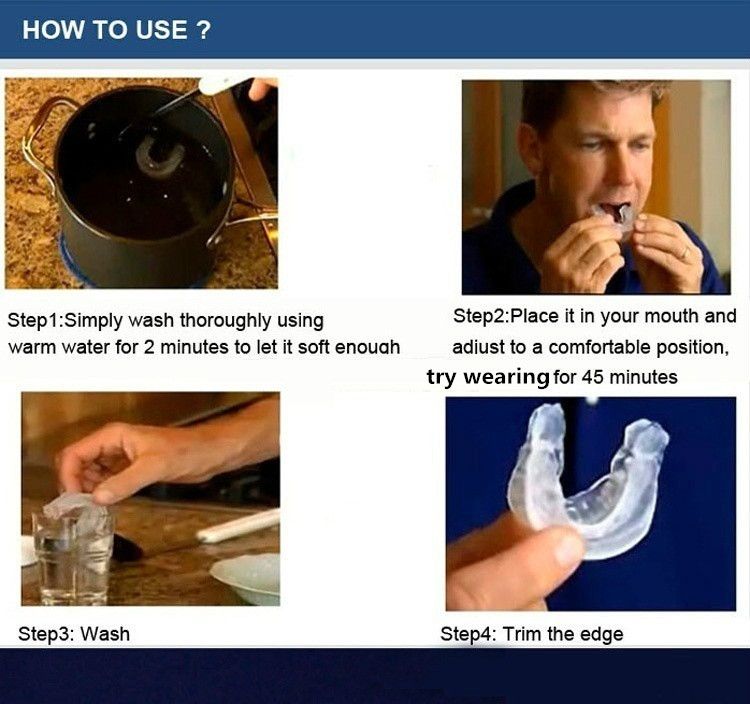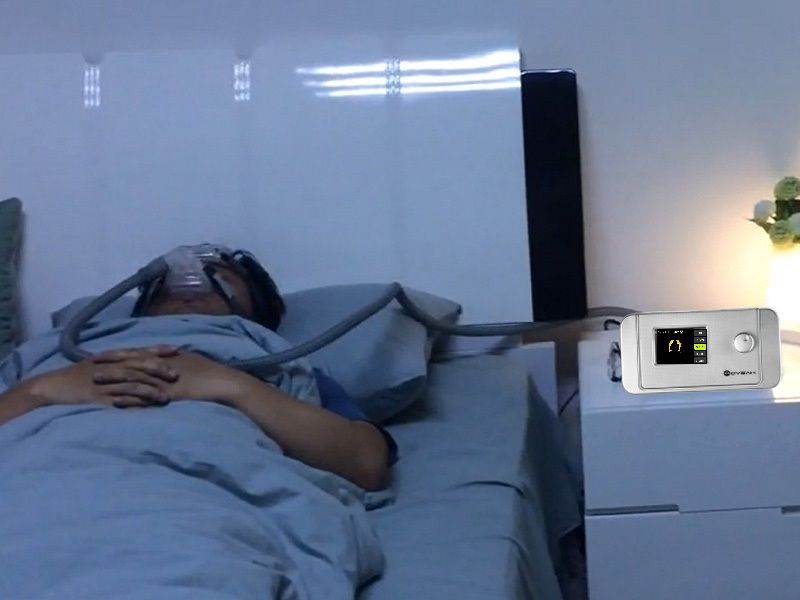How To Stop Snoring: Top 15 Recommendations
- Snoring reasons
- 1) Obesity.
- 2) Diseases of the nasopharynx.
- 3) Asthma.
- 4) Menopause.
- 5) Aging.
- 6) Alcohol, smoking, medicines.
- Effective methods of dealing with snoring
- 1) Sleep on your side.
- 2) Normalization of weight.
- 3) Limiting dairy products before bed.
- 4) Avoiding alcohol.
- 5) Vitamin C.
- 6) Mint and hydrastis oil.
- 7) Greek fenugreek.
- 8) Eucalyptus.
- 9) Orthodontic retainer.
- 10) Intraoral devices.
- 11) Palatine implants.
- 12) CPAP therapy.
- 13) Plastic surgery of the palate
- 14) Humid air.
- 15) Exercises for the soft palate.
- In conclusion: how to stop snoring
Snoring is a natural phenomenon triggered by the relaxation of the soft palate and uvula during sleep. The free movement of air through the nose and throat is disturbed, soft tissues vibrate, a characteristic low-frequency sound, rattling occurs.
Snoring can be accompanied by apnea, provoke insomnia, depression, the development of hormonal problems, heart disease, hypertension, diabetes. The process is also destructive for the brain - with chronic snoring, destructive changes occur in the cells of the organ, mental abilities deteriorate. Loud sounds also irritate those who have to share a bedroom with a snoring person.
If this problem has affected you and you are looking for an answer to the question - how to stop snoring, then this article will help you. Read and remember!
In order to know exactly how to stop snoring, it is necessary to determine the cause of its occurrence.
If this problem has affected you and you are looking for an answer to the question - how to stop snoring, then this article will help you. Read and remember!
Snoring reasons
1) Obesity.
Chronic overeating and lack of movement leads to the accumulation of fatty tissue (and in the throat area too). The airways become narrowed, which disrupts the normal movement of air in the oropharynx. This reason for snoring is more common in men, since when the men gain weight, fat is often concentrated in the neck.
When a person falls asleep on their back, the pressure of adipose tissue on the airways increases, blocking the passage of air. Rolling onto your side helps temporarily eliminate snoring. To radically solve the problem, it is necessary to normalize weight, increase the level of physical activity.
2) Diseases of the nasopharynx.
A stuffy nose makes it difficult for air to enter the nasopharynx and oropharynx, a vacuum is created in the throat, which leads to snoring. It is necessary to take care of the cleanliness of the paranasal sinuses, to treat inflammatory diseases.
3) Asthma.
Many asthmatics suffer from apnea, intermittent hypoxia.
4) Menopause.
During this period, the muscles, as a rule, lose their tone, and excess weight appears. After the age of 70, the number of women snoring is increasing.
5) Aging.
With age, muscle tone deteriorates, this also applies to the larynx. In the absence of physical activity, the likelihood that sleep will be accompanied by snoring increases.
A healthier lifestyle and special exercises to strengthen the muscles of the pharynx can help fight snoring at this stage.
6) Alcohol, smoking, medicines.
Some medications (tranquilizers, diazepam), like alcohol, relax the muscles of the larynx. Smoking causes breathing problems.
Effective methods of dealing with snoring
1) Sleep on your side.
If snoring is not due to any health problem, but is triggered by the habit of sleeping on your back, changing your sleeping position will help.
Pillows will help to keep the body in the “lying on its side” position, a sensitive partner who, having heard the “roulade”, will be able to correct the sleeping position.
You can use a tennis ball for control by attaching it to your back (for example, sewing a pocket on a T-shirt or pajamas in the shoulder blades). If you try to lie on your back, the ball will create noticeable discomfort and make you roll over on its side.
2) Normalization of weight.
Being overweight is a potential threat to the development of apnea and snoring. In the process of losing weight, the neck circumference also decreases, the pressure on the throat during sleep decreases.
3) Limiting dairy products before bed.
Milk and other dairy products increase the amount of mucus. The secretion product can block the airways.
Overeating is also worth avoiding - when the stomach is full, it presses on the diaphragm, disrupting the rhythm of breathing.
4) Avoiding alcohol.
These drinks relax the muscles in the throat and tongue. Drinking alcohol before bed is almost 100% guaranteed to cause snoring.
5) Vitamin C.
With inflammation of the paranasal sinuses, the passage of air is disrupted, a person is forced to sleep with an open mouth. In this case, the uvula vibrates from the movement of the air flow, snoring occurs.
Foods rich in vitamin C heals the immune system and helps fight inflammation. The menu should include: bell peppers, citrus fruits, broccoli and other types of cabbage, rose hips, wild garlic, sea buckthorn, dill.
6) Mint and hydrastis oil.
If snoring is caused by nasal congestion, yellow root oil or peppermint oil can help ease breathing. Preparations made from these plants (in the form of capsules, tinctures) will help to soften and remove accumulated mucus, herbal tea is also useful.
7) Greek fenugreek.
Indigestion can also cause snoring. Normalizes digestion, helps with dyspepsia Shambhala (fenugreek). Mint also relieves symptoms of dyspepsia and reflux.
8) Eucalyptus.
The plant oil helps in the treatment of colds and is effective as a remedy for insomnia. You can cleanse your sinuses by placing a few drops of oil in a steam inhaler. The second option is to simply breathe in the steam over a bowl of hot water (with 5 drops of peppermint and eucalyptus oil added). It is better to carry out the procedure before bedtime, it helps to cleanse the nasal cavity, reduces inflammation of the sinuses.
9) Orthodontic retainer.
The device is usually recommended by a dentist. The retainer not only corrects the shape of the teeth, but also helps prevent snoring and apnea (preventing the sinking of the lower jaw, tongue, blockage of the oropharyngeal space).
A Mandibular Advancement Splint typically costs a thousand dollars at first, as a personal mold has to be taken of your jaw and teeth by a dentist, and a device will be created in plastic only for you, to solve directly your sleep apnea issue with close to no second effects.
Some moldable cheap ones can be bought in pharmacy, store, or online, however they won’t last long and might have adverse effect on your jaw as they are not adapted to your personal specificities.
10) Intraoral devices.
Outwardly, the device looks like a nipple: it is made of plastic and ends in a cup-shaped petal. Finding such a device in the oral cavity causes the muscles of the tongue and pharynx to reflexively contract. Although sleeping on your back can negate the effect of its use. Individual workpieces made of heat-sensitive materials that support the lower jaw are more effective.
11) Palatine implants.
They relieve the flabbiness of the soft palate, prevent tissue vibrations. The operation is performed in an outpatient clinic under local anesthesia and takes no more than half an hour. The effectiveness of the procedure is about 80%.
Among the contraindications: obesity, problems with nasal breathing, hypertrophy of the tonsils, dentoalveolar anomalies.
12) CPAP therapy.
The CPAP therapy is used for severe sleep disorders, for the treatment of apnea. The device is fixed using a special mask. A pressurized compressor delivers air to the respiratory tract, preventing oxygen starvation.
The method not only eliminates snoring, but also improves the quality of sleep, relieves chronic fatigue, heaviness in the head, confusion. It is also used in the treatment of depression, diabetes, arterial hypertension.
Before using the device, the patient is examined under laboratory conditions (or the readings of cardio-respiratory monitoring are used).
13) Plastic surgery of the palate
With the help of a laser (or cryoapplicator), they affect the area of the palate and uvula: cold or thermal burns are applied, inflammation develops. After the tissue heals, the palate becomes denser, vibration decreases.
14) Humid air.
Due to dry air, the mucous membrane of the nose and throat dries up, breathing is disturbed, the tissues begin to vibrate. Using a humidifier at least at night will prevent snoring and help normalize sleep.
15) Exercises for the soft palate.
Training the muscles of the throat, tongue, palate prevents them from excessive relaxation during sleep:
- open your mouth, stretch your tongue (fix for 5 seconds), perform up to 30 repetitions twice a day;
- circular movements of the jaw with the maximum possible amplitude 10 times clockwise and vice versa;
- pressure on the palate with the tongue (45-60 seconds, 3-5 approaches);
- stretching the tongue up and down, right and left, moving in a circle, clicking, rolling into a tube, trying to reach the tip of the nose.
Strengthens the muscles of the larynx by gargling with the sound grrr, drinking in small sips, massage of the palate with fingers from front to back.
It is useful to inflate balloons. In this case, the tension should not be felt in the cheeks, but in the larynx and palate.
In conclusion: how to stop snoring
Snoring cannot be ignored, it not only causes discomfort to others, but also does not allow you to fully rest. By visiting a specialist, it will be possible to identify the cause of the snoring and determine the therapy.



